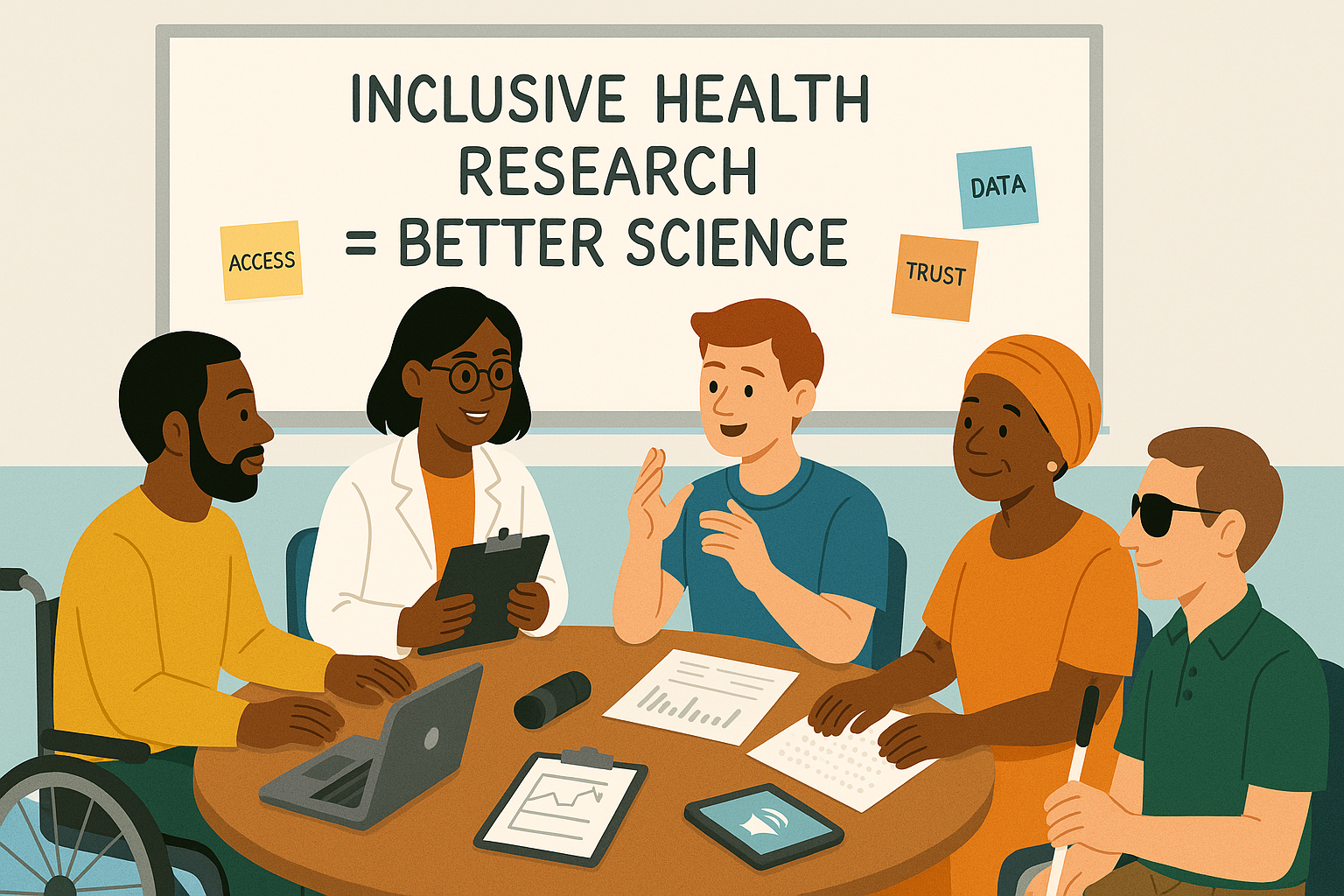
BREAKING BARRIERS: Why disability inclusion in health research matters

Writes: Bilal Mpembamoto
Imagine a woman living with cerebral palsy in a small town. She’s got a sharp mind and a passion for helping others, but when a health study comes around, she can’t join because the forms aren’t accessible, and the researchers assume she can’t keep up. Or picture a deaf father, who wants to contribute to a cancer research project but gets left out because no one thought to provide a sign language interpreter.
These aren’t just stories—they’re real-life examples of a problem tackled in a groundbreaking article published in Nature Medicine on March 26, 2025, titled "A global call to action for disability inclusion in health research," to which Dr. Mwifadhi Mrisho from the Ifakara Health Institute has contributed.
The big picture: One in six left behind
About one in six people worldwide—over a billion—live with some form of disability. That’s a huge group, bigger than the population of most countries! Yet, when it comes to health research, these people are often sidelined.
Dr. Mwifadhi Mrisho and colleagues, part of the Disability Inclusion in Research Collaboration (DIRECT), argue this isn’t just unfair—it’s a missed opportunity. Disabled people bring unique strengths, like resilience and creative problem-solving, but they’re also hit harder by health issues. Without their voices, research can’t fully solve real-world problems.
Why are they left out?
The article digs into the roadblocks. Sometimes, it’s blatant: studies set rules that kick out anyone with a disability, like saying “no cognitive impairments allowed,” even when it’s not necessary. A review of over 2,700 trials found more than a third did this—and in 96% of those cases, a simple tweak could’ve let people in.
Other times, it’s sneakier: think inaccessible websites, tiny print, or assuming someone can’t consent just because they use a wheelchair. Then there’s mistrust—years of being ignored or misunderstood make some disabled folks wary of signing up.
Picture a visually impaired eager to join a diabetes study but can’t because the consent forms aren’t in Braille, and no one offered help. Stories like this show how research often fails to adapt, leaving gaps in what we know about health for disabled people.
The cost of exclusion
When disabled people aren’t included, the results can miss the mark. Imagine a new drug that works great—unless you’ve got arthritis and can’t open the bottle. Or a fitness app that assumes everyone can walk, ignoring folks who use wheelchairs.
Dr. Mwifadhi Mrisho and colleagues point out this isn’t just a science problem—it’s a human rights issue, backed by laws like the United Nations Convention on the Rights of Persons with Disabilities. Plus, fixing it helps everyone: ramps for wheelchairs also help parents with strollers!
A new way forward
Dr. Mwifadhi Mrisho and colleagues aren’t just complaining—they’re calling for action. They want disabled people at every step of research, from dreaming up ideas to sharing results. Think of it like this: if you’re building a house, you’d ask the people living in it what they need, right? Same goes here.
So, they suggest principles like building trust (think coffee chats before studies start), valuing strengths (like how a deaf perspective could spot gaps others miss), and making things accessible (Braille, interpreters, you name it).
In Australia, a project called “Include Me” already shows this works. Researchers teamed up with Indigenous people with disabilities to study mental health, co-designing surveys that actually made sense to them. The result? Better data and happier participants.
Counting everyone in
One big hurdle? We don’t even know who’s out there. Disability data is a mess—some studies count it, some don’t, and definitions vary. Dr. Mwifadhi Mrisho and colleagues push for global standards that go beyond “can you walk?” to ask about real barriers, like stigma or lack of transport. This could help folks like Dr. Mrisho himself prove how many people need better care in places like his home country.
A global wake-up call
This isn’t a small fix—it’s a worldwide shift. Dr. Mwifadhi Mrisho and colleagues, with their diverse voices from advocates to scientists with disabilities, make it clear: health research can’t keep leaving out one in six people. It’s not just about fairness—it’s about smarter science.
Next time you hear about a breakthrough, ask: “Did they include persons with disability?” Because if they didn’t, it might not work for everyone.
Want to dig deeper? Check out the full article in Nature Medicine—it’s a roadmap to a future where no one’s left behind.
_______
Bilal Mpembamoto heads the Communications Office at the Ifakara Health Institute. He’s an experienced science writer and media editor, having worked for reputable media outlets in Tanzania, including The Guardian and Mwananchi Communications.
